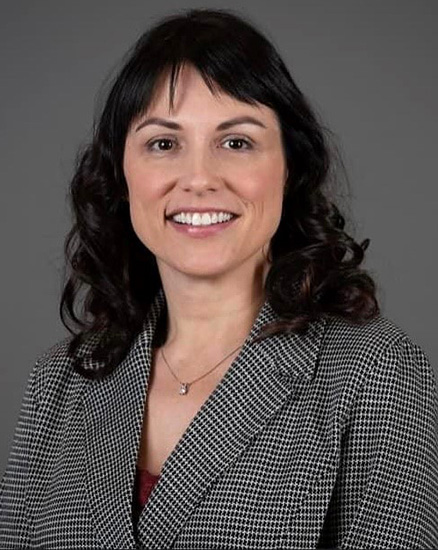Group therapy benefits: A Psychologist at CFB Halifax weighs in
November 10, 2023 - Defence Stories

Caption
Dr. Chimène Jewer
Dr. Chimène Jewer is a Psychologist in the General Mental Health (GMH) clinic at CFB Halifax, and is also the President of the Association of Psychologists of Nova Scotia (APNS).
Her main area of expertise is in psychological assessment and treatment of adults. She was trained primarily in Cognitive-Behavioral Therapy, but also practises other evidence-based treatments, such as dialectical behaviour therapy, and eye movement desensitization and reprocessing therapy.
What a regular day looks like:
A regular workday for Dr. Jewer starts with file review and preparation for the assessment or therapy cases she sees that day, which includes a review of all the assessment and treatment history of the client, as well as any relevant medical information on the file. Meeting with new clients takes a few hours; they discuss what brought them in, current symptoms, and background information about their mental and physical health, medications, family history, childhood development, work history, etc. She then compiles this information, scores and interprets any psychometric tests that were administered, formulates a case concept, writes a report, and then communicates this to the client’s primary care clinician.
Dr. Jewer also runs a group therapy program one afternoon a week, takes part in case consultations when these are scheduled, and co-supervises a psychology intern who often sits in to observe assessments.
On the benefits of group therapy for CAF members:
There are several benefits to group therapy for CAF members, which individual therapies cannot always offer. Being in group therapy helps members normalize their struggles. Participants learn from people with similar lived experiences, which can be inspiring and foster hope. Also, being in group increases the client’s support network. Group members get to practice valuable social skills in a safe space, and they can give and take feedback, practice active listening and empathy, and even overcome social anxiety, all of which cannot be accomplished in individual treatment. Group therapy is also more efficient, which helps to reduce wait times for treatment.
On how the mental health services in the CAF compare to the general Canadian public:
Mental health services in the CAF are quicker and easier to access than they are to the general Canadian public. Accessing private mental health care from a private psychologist can also be expensive to pay out-of-pocket. Mental health care in the CAF is closely coordinated among providers as CAF members can access mental health and addictions treatment and routine medical care in the same place. For the public, these services may be delivered by providers housed in different locations, which makes it more difficult to coordinate care.
On what she wants all CAF members to know about mental health:
“Some challenges, stressors, changes in mood, occasional sleeplessness, etc. are normal. There is a continuum of severity with mental health issues, just like there is with our physical health. Sometimes, all that may be needed are some resources to help you cope, taking a mental health day to rest, engaging in good self-care, exercise, sleep, talking to a friend, etc. Try some of these things first, and give it time, and remind yourself that some of this is normal and sometimes it is OK not to be OK. However, if problems persist for several weeks or more, are affecting your ability to function in your day-to-day life, your relationships, work or school, then it may be time to present to your doctor; they will screen you to see if you need to see a mental health specialist.”